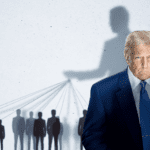After nearly two years in detention, five Chinese employees of the U.S.-based due diligence firm Mintz Group have been released by Chinese authorities, marking a quiet but potentially telling shift in China’s posture toward foreign businesses. The staff, who were detained during a 2023 raid on Mintz’s Beijing office, had been accused of conducting “unapproved statistical work”—a charge that culminated in a $1.5 million fine for the company and rattled the confidence of international firms operating in China.
The release comes not with fanfare but with timing that raises questions across diplomatic and business circles. As U.S.-China relations remain complex and tense, especially in areas such as data, security, and intellectual property, this development may be less about justice and more about strategy.
Crackdowns and Compliance: The Cost of Doing Business in China
Mintz’s case wasn’t an isolated one. Over the past two years, China has ramped up scrutiny on foreign consultancy and due diligence firms. In addition to Mintz, offices of Bain & Company and Capvision Partners were raided under similar allegations. The Chinese government has cited national security and unauthorized data collection as key reasons for its clampdown, while foreign firms see it as a move to intimidate and control information flows.
Foreign businesses, especially those conducting investigative work, are facing serious questions about whether they can continue operating in China. Many are now more cautious than ever: unclear rules about what counts as “unapproved” work have made it much riskier to do business. As Paul Haenle, director of the Carnegie China think tank, said, “There is now an embedded assumption of vulnerability for foreign firms operating in sensitive sectors”.
Economic Diplomacy: Recalibrating the Optics
The timing of the release is particularly notable. China is aggressively courting foreign investment to revive its slowing economy. Senior leaders, including President Xi Jinping, have recently held private meetings with CEOs like Apple’s Tim Cook and Pfizer’s Albert Bourla, in efforts to reassure the global business community that China remains “open for business”.
Releasing Mintz’s staff may be a calculated move to de-escalate business anxieties without directly acknowledging fault or signaling policy change. It is, in essence, a form of economic diplomacy—showing flexibility where needed, without compromising control.
The message? China wants the world’s capital, but on its terms.
Future Scenarios: Cooperation or Cold Shoulders?
This development opens the door to multiple future scenarios. One possibility is a normalization of foreign business activity—but under strict conditions. China may gradually ease restrictions on certain firms, especially those that demonstrate a commitment to complying with local regulatory frameworks and steer clear of politically sensitive sectors. Such a selective approach would allow Beijing to maintain its grip on national security while offering just enough openness to entice foreign capital.
At the same time, many international consultancies are likely to adopt increased risk-averse strategies. The Mintz case has served as a cautionary tale, and businesses will be recalibrating their China strategies with heightened attention to legal ambiguity, data restrictions, and the unpredictability of enforcement. Some may downsize their China presence altogether or choose to work only through vetted local partners to avoid falling afoul of opaque regulations.
Meanwhile, China is unlikely to fully reverse its crackdown. Rather, it may continue using high-profile cases like Mintz as deterrent signals—a way to warn foreign actors that while participation in the Chinese market is welcome, it is conditional on full adherence to rules that may shift without warning. The state’s legal apparatus thus doubles as a tool of governance and foreign policy leverage.
A Final Note: A Cautious Opening or Strategic Mirage?
The release of the Mintz Group staff is both a symbolic and strategic gesture. On the surface, it appears to signal a willingness by Beijing to de-escalate tensions with foreign businesses and reassure global investors. But beneath that gesture lies a broader pattern of state behavior—one driven by a desire to control information, assert sovereignty, and manage security threats on its own terms.
Just as China has taken a firm stance against foreign consultancies collecting sensitive data within its borders, it also frames global conflicts, like the war in Gaza, through the lens of non-interference and national sovereignty. These positions are not isolated—they reflect a consistent worldview in which state control and stability take precedence over transparency or alignment with Western norms.
Ultimately, whether this recent move represents a genuine shift or a tactical pause remains to be seen. For multinational companies and foreign governments alike, the message is clear: engagement with China will require not only economic strategy but a deeper understanding of its political and ideological priorities.













